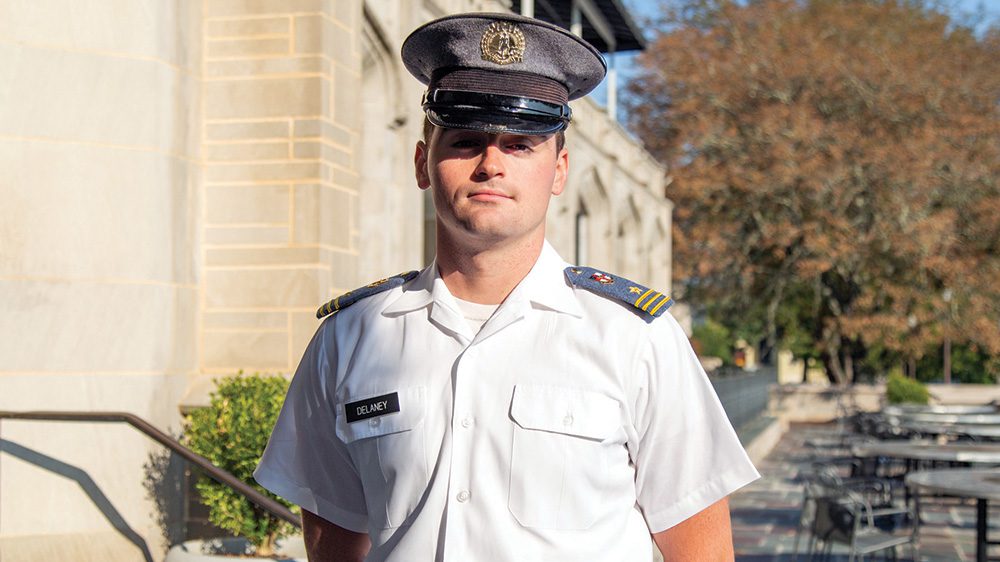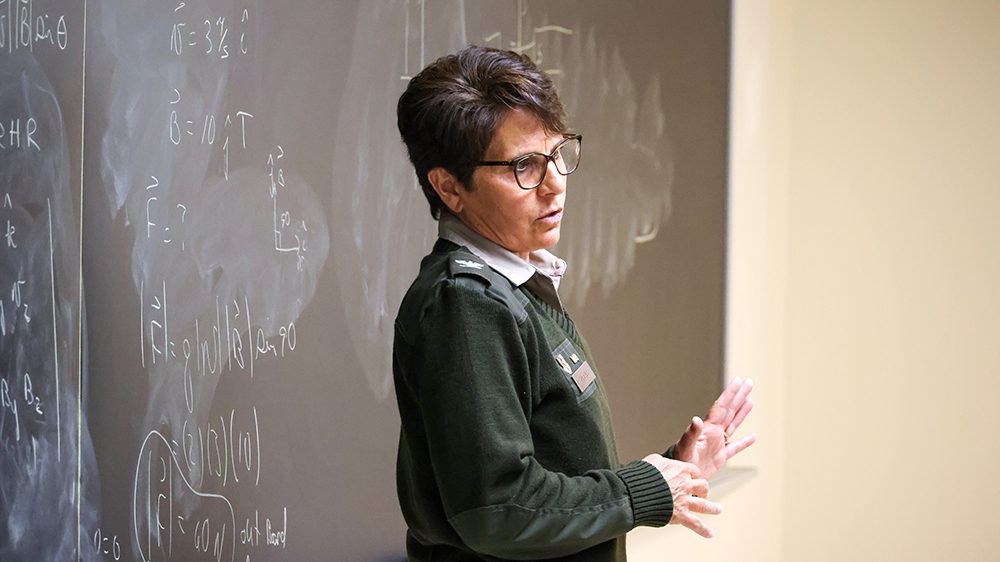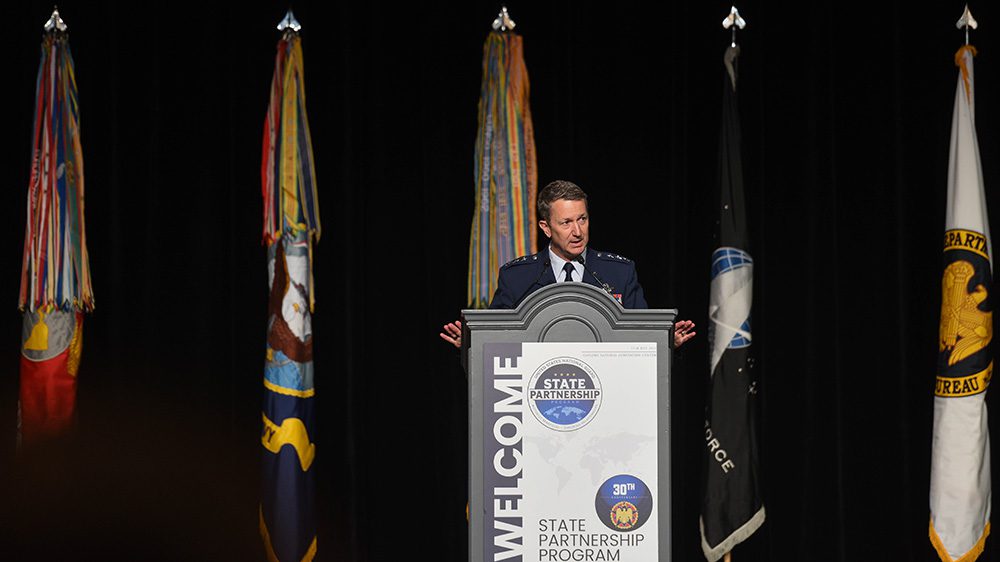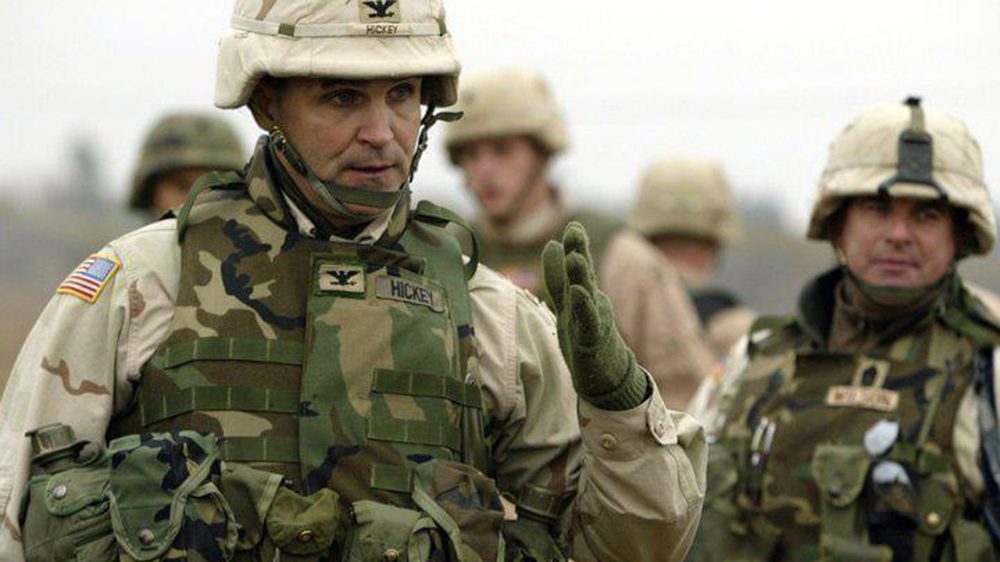The other—perhaps larger—point of learning for 1st Class cadets is the great unknown, “going beyond understanding the implications of living an honorable life in college,” Delaney said. “Post-collegiately—whether you’re an infantry officer or you’re studying law somewhere, it’s how this [the Honor Code] can truly shape you and how you should stick with [it], wherever you are.”
Though Delaney holds a high visibility position now, when he matriculated, he was just another rat—even (or maybe especially) to his brother, Dolan ’20. Dolan was the first sergeant for Company I, and Delaney matriculated into Company I. He was soon transferred to another company, so he spent less than a day in Company I. But during those 12 hours, Delaney said his older brother “gave me his share of the Rat Line.”
Aside from the 12 hours he spent under his brother’s cadre tutelage, going to VMI with his brother was “like having a second dyke.” The two are the same major—English—and even had a class together.
From his brothers—another brother is a Naval Academy alumnus—and father, Class of 1985, Delaney knew how busy he would be at military school. Early in his cadetship, he decided he wouldn’t seek rank, but focus on grades and physical fitness. He stuck to that resolve into his 3rd Class year. Then came elections for the Honor Court. The elections start big—the class votes in 50 people—and the group gets smaller through successive votes, which whittle the group down to 25, 10, and so on, until finally the class chooses five cadets. Delaney’s name was in the first round of 50. Cadets can pull their names out of the voting. He didn’t pull his name out, supposing that his BRs would not continue to vote for him—but they did.
“I was really on the fence about it, because I knew that it was such a big position,” he said. “You do have to give so much time for it. You’d better be good at it. And you’d better be ready to put forward that time and that effort.”
When the last five names, those who would represent the Class of 2022 on the Honor Court, were published, Delaney’s name was one of the five. He wasn’t sure he was up to the task.
“At first, I was pretty nervous,” he remembered. “One of the things that comforted me was just knowing, if my BRs picked me, then they obviously see something, regardless of whether I saw it or not.”
Last year, the Class of 2021 Honor Court members looked at the class below them and selected the right person for each job. When Delaney learned he was chosen as the president of the Honor Court, he again went through self-examination. He thought, “I really hope I’m the guy for this job, that I can … actually do what’s expected of me and be a good Honor Court president.”
Over the summer, while these thoughts were going through his mind, he took comfort in knowing—just like when his BRs elected him to the Honor Court—that someone else saw something in him. “The Class of ’21, they saw something in me, they felt I could handle it, [so] I know I can handle it.”
In total, there are 14 cadets on the Honor Court. The 1st Class representatives are the president, vice president for defense, vice president for education, vice president for investigations, and three prosecutors. The 2nd Class members also number seven and are assistant prosecutors. All members work together, Delaney emphasized.
“It’s not like I have the final say on things,” he explained. “We all get together. When we make decisions, we make them together. The president is the overseeing judge of the trial, but it’s not like my words are the final say. I wouldn’t even want to [have the final say], because a lot of those guys are a lot smarter than me—a lot better cadets than me. I think it would be a shame if we ran it that way. We all take each other’s opinions and word equally. It always helps me know I’m not going at it alone.”
Delaney plans to attend Officer Candidate School following his graduation and commission into the Navy.





